Home / / Photo / Sculptures / Curatorial Projects / Bio / Contact
![]()
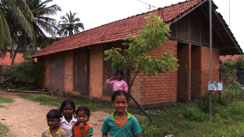
![]()
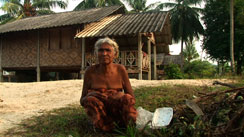
![]()
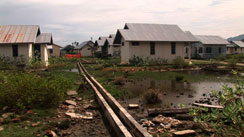
![]()
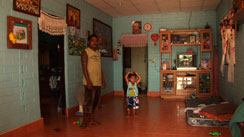
![]()
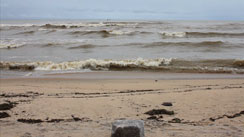
![]()
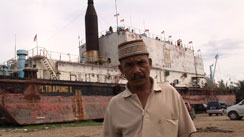
![]()
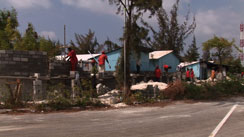
![]()
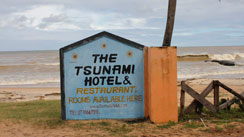
![]()
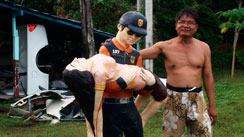
![]()
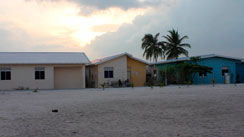
![]()
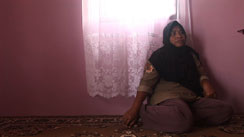
![]()
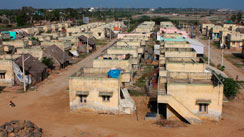
![]()
![]()
> back
![]()
![]()
quotes from interviews:
Before the Tsunami, people were very social. They communicated and helped each other. But there is a gap now. People helped each other after the Tsunami but social life is not the same as it used to be. (Mr. Barrahudin, Lamptutui, Ace, Indonesia)
All of us were involved in the construction of our houses. We sat together, discussed what kind of design we want and finally decided on the ‘Spanish’ design. The materials were sponsored by a foundation, and the community received a loan to purchase the land. Depending on the season, we work as fishermen or in construction, but right now we are struggling to pay back the mortgage. (Inhabitants of resettlement village, Baan Nam Khem, Thailand)
We gave them some good roads. We also gave them the idea of home gardening so they could sell their own vegetables at the market in Pottuvil. We were forcing them to do it. They did it, but once we left they stopped. We didn’t want to give people houses just for free – they were costing almost $7,000. We asked them to work 21 days on the construction, but even that didn’t happen. They thought they would get everything for free. They were really dependent on us. After the NGOs left it was really hard for them to change that attitude. They were just not interested in doing any work for their future. (Shiva Haridev, translatorfor Solid House Foundation, Pottuvil, Sri Lanka)
We are not used to living in apartment buildings. We are much too close to each other. Water pipes leak. The toilets overflow... We are afraid the whole building will collapse. We can’t leave our doors open and we have to keep our children inside because the neighborhood is so dangerous! (Housewives in Rattmala, Sri Lanka)
There are so many complaints to make about this house! You can’t close these doors properly. Sand comes inside the house because this side is open. When there is heavy rain everything gets wet. The bathroom is too small. We built this wall with our own hands, to keep the sand out. We also improved the kitchen with our own money. (Inhabitants of a Shigeru Ban house, Kirinda, Sri Lanka)
Around fifty families lived here before. Pretty much everyone left after the tsunami. Some people tried to come back but the authorities wouldn’t allow them to rebuild their houses. The government wants to develop tourism. This is now a designated tourist area. It was declared a high-risk zone: nobody is allowed to live here anymore but tourists. They already started cleaning up for a hotel project. Some people have received houses in other areas. But they don‘t want to give up their property. They have legal documents to prove their ownership of the land. We support the development of our country, but the problem is, we are being displaced. (Man working in recycling, Hambantota, Sri Lanka)
The island Kandholhudhoo was the smallest island with the largest population probably anywhere in the world. Close to 4,000 people lived there. After the tsunami, the government took advantage of it to relocate people. The island of Dhuvaafaru was selected for the relocation, which isn’t a very good choice – not very big for a population of 4,000. Now it’s almost full. What are we going to do ten years from now? (Minister for Disaster Management, Malé, Maldives)
We expected some money from the government or the Red Cross but that never materialized. I am frustrated, but I cannot change anything. I would change a lot, but I cannot even plant a tree. The government just set up four poles, put a wall around it and called it a home. Then they put up four walls to cover the nakedness. Only those who can afford to build a wall around it can have a home. Like our neighbors, we really want a wall around our house, but we cannot afford it. We have three kids who finish school this year but we cannot afford for them to come back here. Right now, it’s just the bed-and-breakfast that keeps us going... (former businessman, Dhuvaafaru, Maldives)
The tsunami was a great loss for many people. But after five years we can say it also had a good side. Earlier, the seashore was full of huts. These villages were totally ‘untouchable’ areas. They never had proper electricity, drinking water, electricity ... But now we see this totally transformed. Everybody got good houses, concrete houses. Because of the tsunami we have good schools and good institutions. Now women can also leave the house. Now they sew, do craftwork, computers…they are getting micro-finance loans so they start up small businesses like small shops and are becoming independent. (Lizzy Samuels, School manager, Tharangambadi, Tamil Nadu, India)
-